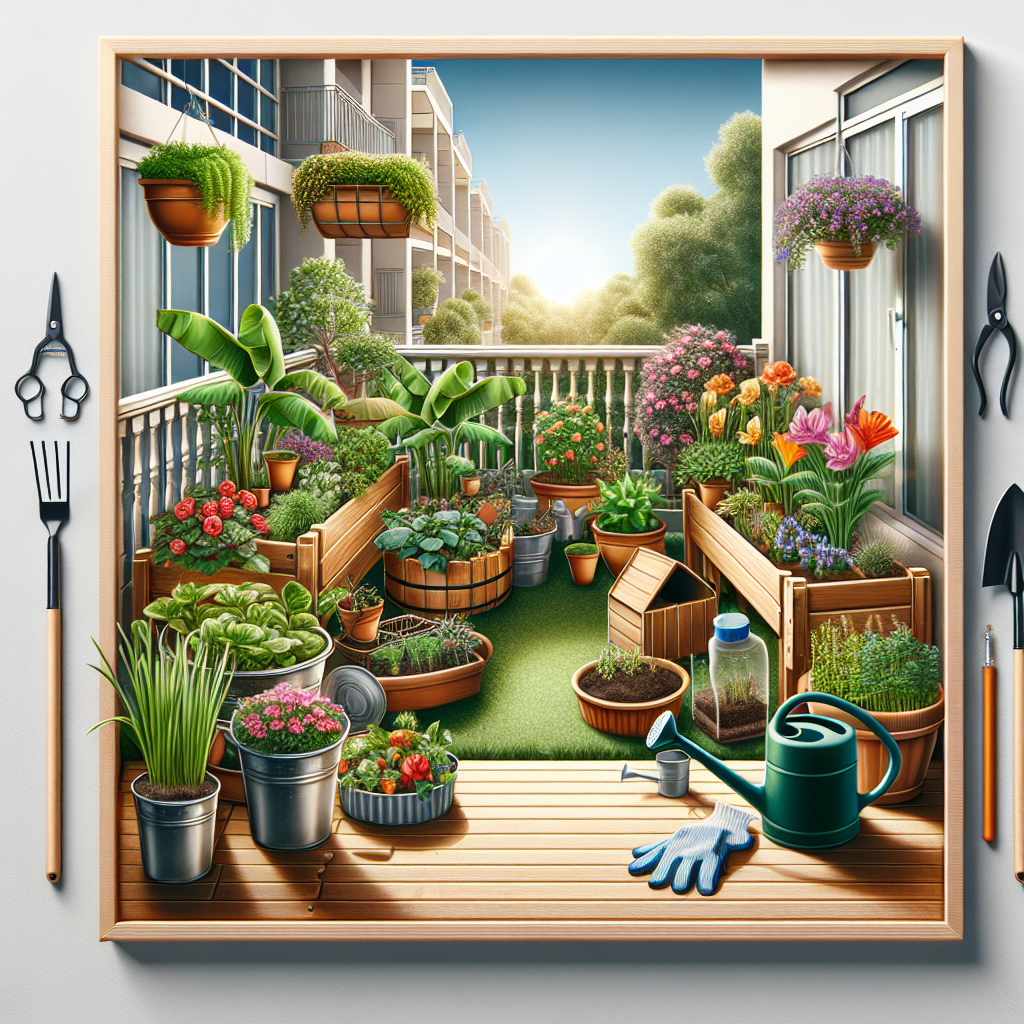Balcony gardening is a great way to bring a touch of greenery into your living space, even if you don’t have a yard or garden. With the right tips and tricks, you can create a beautiful and thriving balcony garden that will provide you with fresh herbs, flowers, or vegetables all year round. In this article, we will discuss some essential tips and tricks for successful balcony gardening.
Choose the Right Plants
When it comes to balcony gardening, choosing the right plants is key to success. Consider the amount of sun exposure your balcony receives and select plants that will thrive in those conditions. Some good options for sunny balconies include herbs like basil, cilantro, and thyme, as well as flowers like geraniums and marigolds. If your balcony gets less sunlight, opt for shade-loving plants like ferns, begonias, and impatiens.
Use the Right Containers
The containers you choose for your balcony garden can make a big difference in its success. Make sure your containers have drainage holes to prevent waterlogged soil, which can lead to root rot. You can use traditional terracotta pots, hanging baskets, window boxes, or even recycled containers like old buckets or crates.
Consider using self-watering containers or adding a layer of gravel at the bottom of your pots to help with drainage. Additionally, avoid using metal containers on hot days as they can heat up quickly and damage roots.
Provide Adequate Watering
Balcony gardens often require more frequent watering than traditional gardens due to their exposure to wind and sun. Check the moisture levels in your soil regularly by sticking your finger into the soil; if it feels dry an inch below the surface, it’s time to water.
Be mindful of overwatering as well; too much water can lead to root rot. Water deeply when you do water your plants and let excess water drain out through the bottom of the container.
Fertilize Regularly
To keep your balcony garden healthy and thriving, it’s essential to fertilize regularly. Choose a balanced fertilizer that contains nitrogen (N), phosphorus (P), and potassium (K) – these are essential nutrients that plants need for growth.
You can choose between organic fertilizers like compost or manure or synthetic fertilizers specially formulated for container gardens. Follow the instructions on the packaging for proper application rates.
Prune Regularly
Regular pruning helps promote healthy growth in your plants by removing dead or damaged leaves and encouraging new growth. Prune back leggy stems on herbs like basil to encourage bushier growth and pinch off flower buds on herbs like parsley to focus energy on leaf production.
Additionally, deadhead flowers regularly by removing spent blooms; this will encourage more flowers to bloom throughout the season.
Protect Your Plants
Balcony gardens are susceptible to pests like aphids, spider mites, and whiteflies due to their close proximity to other plants and buildings. Keep an eye out for signs of pest damage like yellowing leaves or sticky residue on plant surfaces.
Consider using natural pest control methods like spraying plants with neem oil or introducing beneficial insects like ladybugs that feed on pests. Avoid using chemical pesticides as they can harm beneficial insects and pollinators as well as contaminate food crops.
Protect Your Plants from Harsh Weather
Balcony gardens are also exposed to harsh weather conditions like strong winds, extreme temperatures, and heavy rainfall. Consider installing windbreaks like trellises or screens around your balcony garden to protect delicate plants from wind damage.
During heatwaves or cold snaps, move potted plants indoors temporarily until temperatures stabilize again. Additionally, cover tender plants with frost cloth during cold nights or bring them inside during severe weather events.
Enjoy Your Balcony Garden!
With these tips and tricks in mind,
you’re well on your way
to creating a successful
balcony garden that will bring
beauty,
fresh produce,
and tranquility
to your outdoor living space.
Don’t be afraid
to get creative
and experiment with different plant varieties,
container combinations,
and gardening techniques.
Remember that
gardening is a journey
that requires patience,
dedication,
and love –
so enjoy every moment
of nurturing
your own little piece of nature
right outside
your door!













